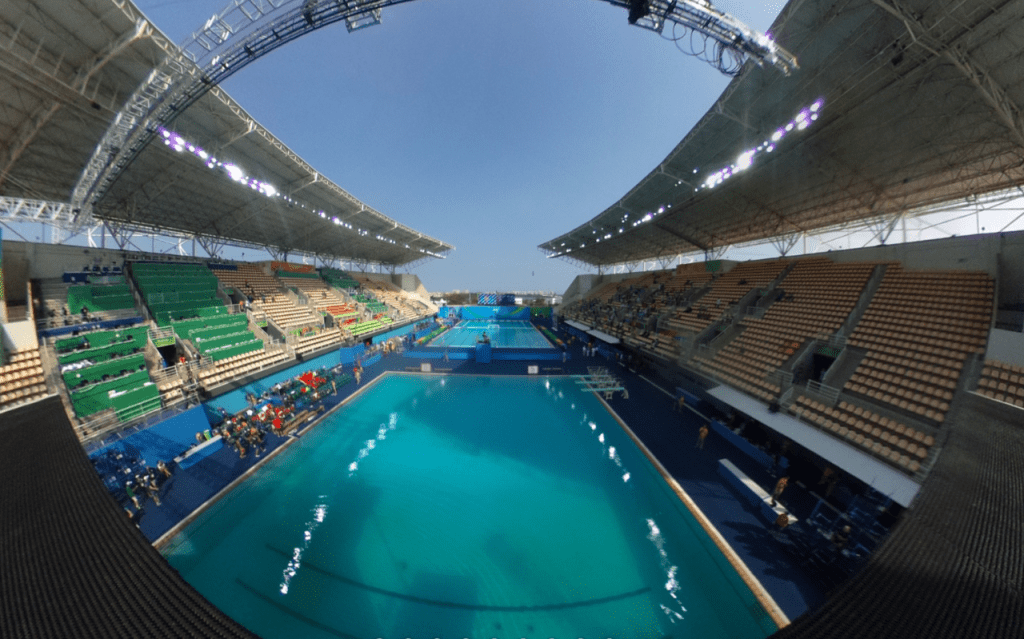My mother believed life should be graceful and clean, much like the way she entered the water when she was young. She had been a diver and, for a time, the most famous woman in town. Especially once she began killing people.
She was an all-city legend, a state champion and regional medalist with a national rank. She split the water like a razor, all muscle and light as she injected herself into the pool with hardly a splash. Trophies and talent scouts filled our home. Men peered at her through viewfinders and discussed her dimples and the size of her teeth, wondering if she might be the new face of breakfast cereal.
Six weeks before the Olympics, they filmed her diving off the side of Route 46 where it crossed the industrial canal. They wanted inspiring footage for the Tokyo games, an Elysian myth about small town grit that would galvanize kids across the country and send their parents scrambling to register for swimming lessons. Most of all, they needed a story that would take our minds off the security checkpoints at the grocery store, the sight of camouflaged men with weapons patrolling the laundry detergent and frozen dinners. Something to distract us from the explosions and the smell of week-old pepper spray that lingered in the air like a mean perfume.
Fireworks bloomed as my mother squinted into a dozen camera lights and described her love for town and country. This happened years before I arrived, but I know the footage like my name. The crowd mashed against the barricades as she prepared to dive into the canal; the little girls waving sparklers while voices cried her name, the town claiming her as its daughter. A drum roll. A pistol crack. And there’s my mother, jackknifed over the side of the highway, giving a little wave as she twists in a closed pike position, executing a perfect rip entry into the brown river that left barely a ripple. Flashbulbs popped, boozy voices roared, and young men with slicked hair scrambled down the shoals to lift her from the water, their biceps ballooning beneath their white T-shirts.
But there would be no Olympics that year.
My mother hardly spoke after that, preferring to sit by the window and watch the jeeps juddering down the street. But every Fourth of July she would jump off the Route 46 bridge. She’d pull our Buick to the side of the road, strip down in the glow of the headlights, climb over the guardrail, and dive. A few people joined her during those first years, participating in what seemed like a playful if bittersweet lark, the reclusive town hero recapturing a lost moment of glory. But her annual dive gradually took on a logic and life of its own, becoming a ritual of indoctrination for teenagers and a brief thrill for tipsy middle-aged men. As the seasons passed, the factories along the canal closed, their operations relocated to the other side of the world. Each summer the industrial runoff became a little shallower, its inky water burning off in the sun.
Then the screaming began.
I know this moment only by fractured images and noises. The steel window crank. The lunatic sirens and spinning lights. My father running towards the car with tears in his eyes. A teenage boy died that night. He smashed his head on the concrete floor of the canal. My mother survived because she knew how to dive. A lucky combination of trajectory and grace spared the others. My father sobbed as we drove home. “He didn’t have to join me,” my mother said. “None of them did.”
She dove again the next year and the year after that. The water continued to dwindle, its residue visible along the walls of the canal. People dove with her for reasons I never understood. A young woman suffered a concussion. Our neighbor three doors down broke his spine and died a week later. The next morning, two policemen appeared at our door. I clung to my mother’s long legs, pretending I was in a forest while they said, “We can’t allow you to dive off the bridge anymore. You’re killing people.” She called them fascists and slammed the door.
This is how I remember my mother.
James A. Reeves is a writer and designer. His first book, The Road to Somewhere (W. W. Norton), documents 50,000 miles through America, and his stories have appeared in public installations with the Annenberg Space for Photography and Mural Arts Program. He keeps a journal and makes reverberated mixtapes at atlasminor.com.
Image: telegraph.co.uk
Check out HFR’s book catalog, publicity list, submission manager, and buy merch from our Spring store. Follow us on Instagram and YouTube. Disclosure: HFR is an affiliate of Bookshop.org and we will earn a commission if you click through and make a purchase. Sales from Bookshop.org help support independent bookstores and small presses.


Leave a comment